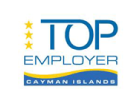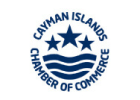Got questions? We've got answers.
Frequently Asked Questions
What services does CML provide?
Learn MoreOffering recruitment, HR consultancy and immigration services, we support our clients with a holistic approach to HR and talent acquisition strategy.
Recruitment:
- Permanent Recruitment
- Temporary/Contract Recruitment
- Executive Search
- Recruitment Process Outsourcing
- Salary Benchmarking
- Talent Mapping & Competitor Analysis
Immigration Services:
- Work Permit Management
- Residency Services
HR Consulting Services:
- Payroll & Benefits Administration
- HRIS Implementation & Maintenance
- Contract & Policy Review
- Employee Handbook Creation
- Performance Management
- Organisational Change/Change Management
- Recruitment & Talent Management
Why work with CML?
Built on a perfect mix of experience, expertise and professionalism. At its founding in 2004, CML set out to become a different kind of recruitment firm: one run by professionals, for professionals. Since then, CML has grown to become the trusted recruitment, HR consulting, and immigration services partner to many of the Cayman Islands’ best known professional, legal, and IT firms. Our mission is to help clients build great teams and to help candidates build great careers.
Recruitment
CML is owned and staffed by professionally qualified accountants, financial services professionals, legal professionals, and HR professionals with many years of experience living and working in the Cayman Islands, giving our team a unique understanding of your experience like nobody else.
HR Consulting
Our team is professionally qualified with vast experience working with a range of Cayman’s leading professional firms and even the government. We have expertise in a range of HR areas and have consulted on everything from introducing new payroll systems to advising on updates to the local labour laws.
Immigration Services
Our team has over 20 years of experience reviewing Cayman Immigration Law and have developed a strong working relationship with the Cayman Islands Department of Workforce Opportunities and Residency Cayman (WORC) over the course of many years of successful work on behalf of our clients. We have a good understanding of what it takes to navigate this complex process smoothly.
How soon will CML Recruitment's teams find me something?
It depends on your qualifications, experience, target role(s), and location(s). Assuming you meet the minimum professional standards for your discipline and have relevant experience transferrable to the offshore market, it can take anywhere from one week to three months or longer to obtain an offer. The more flexible you are concerning the role, salary expectations, and location, the more likely we will be to find you a good opportunity within a relatively short period.
How does the recruitment process work?
Once registered, your resume will be reviewed by a CML Recruitment Consultant. Our consultants are experienced, knowledgeable, and can generally assess the prospects for your employment in offshore services very quickly.
If the consultant believes that we can help you, they will call or email to schedule a telephone call and/or request some further information. This is an opportunity for us to get to know you and find out more about your requirements and expectations and address any concerns we may have about your expectations or circumstances.
Our consultant will be able to give you an accurate and frank estimate of your earning potential, a range of options, and an indication of the likely timeline based on our experience with similar candidates. Once we have a clear picture of your background and preferences, we can initiate an action plan to approach potential employers on your behalf. We will arrange interviews in liaison with our clients’ Human Resource departments.
What do you mean by "offshore"?
Learn MoreWe are specialists in recruiting legal and financial services professionals for the “offshore financial centres” (sometimes referred to as OFC’s).
Although there is no precise definition of the term, the IMF has identified the following factors which have become widely accepted characteristics of an offshore financial centre:
- A relatively large number of financial institutions engaged primarily in business with non-residents;
- Financial systems with external assets and liabilities which are [substantially] out of proportion with the domestic economy;
- Low corporate taxation rates;
- Light or moderate financial regulation;
- Some degree of banking secrecy and anonymity (although this has been substantially eroded in recent years)
Why consider working offshore?
Learn MoreThere are many reasons that make working offshore desireable, but the three main benefits in working in the offshore financial sector are:
Financial
A combination of generally high gross salaries and generally low-income taxes invariably means substantially higher take-home pay.
Quality of Life
Many offshore jurisdictions are thriving financial centres by day and idyllic tropical islands by night. Bermuda and the Caribbean offer warm climates with low annual rainfall, short commutes, low crime, virtually no pollution, and excellent amenities.
Career Prospects
The offshore market has experienced unparalleled growth in the last decade, with no end in sight. Accordingly, the demand for qualified professionals has never been greater. Thousands of professionals have moved to offshore jurisdictions to advance their careers and expand their skillsets. Offshore jurisdictions are home to many of the major international financial services companies. By working in an offshore jurisdiction, professionals can develop a career in international finance while enjoying an excellent work/life balance.
I am a qualified professional and would like to relocate with my spouse/partner and/or children. Will this pose a problem?
Not necessarily, but your options may be somewhat restricted depending on your marital status, earning potential, target location, and spouse’s occupation. It is critical that you make our consultants fully aware of your circumstances from the outset to enable them to advise you appropriately on the potential implications for your cost of living and immigration requirements. If your spouse/partner plans to work, you should provide their resume to your consultant as early as possible in the process.
The bottom line is that a partner’s employment rarely causes an insurmountable problem for couples that are determined to relocate and who are willing to be patient, persistent, and flexible in their search.
I've heard the cost of living is astronomical. Is this true?
The cost of living is generally no higher than you would find in any big financial centre like London or New York. Rent is always the main large expense, but bear in mind that you may get a beachfront condo with a sea view and a swimming pool for the same price as the average one-bedroom apartment in London!
Most offshore centres also have low tax rates, so it is vital to compare net salaries rather than gross, which you may be tempted to do from force of habit. It is very important to research and prepare your own detailed budget, especially if you are relocating with a spouse or dependents.
To help you better understand the reality of life offshore, we have created Offshore Career & Cost of Living Guides for each of the main jurisdictions we recruit, check them out here:
What kind of relocation benefits are generally available?
This varies from client to client. The minimum you can expect is your flight, two weeks car/scooter rental, and two weeks accommodation. This is usually enough time for you to make permanent arrangements for transport and accommodation. Our consultants are happy to help and advise you if required.
At the other end of the spectrum, some companies will offer flights for all your dependents as well as a relocation allowance, which may be on a cash or reimbursement basis. Moving allowances are often included; however, most rental accommodation is fully furnished and equipped. It is therefore inadvisable to bring anything that cannot easily be transported with you as luggage. There is no reason to bring vehicles, household appliances, or furniture. It is not necessary to use a relocation allowance just because you have it. Relocation packages are usually a matter of company policy and are rarely negotiable except for senior management roles.




